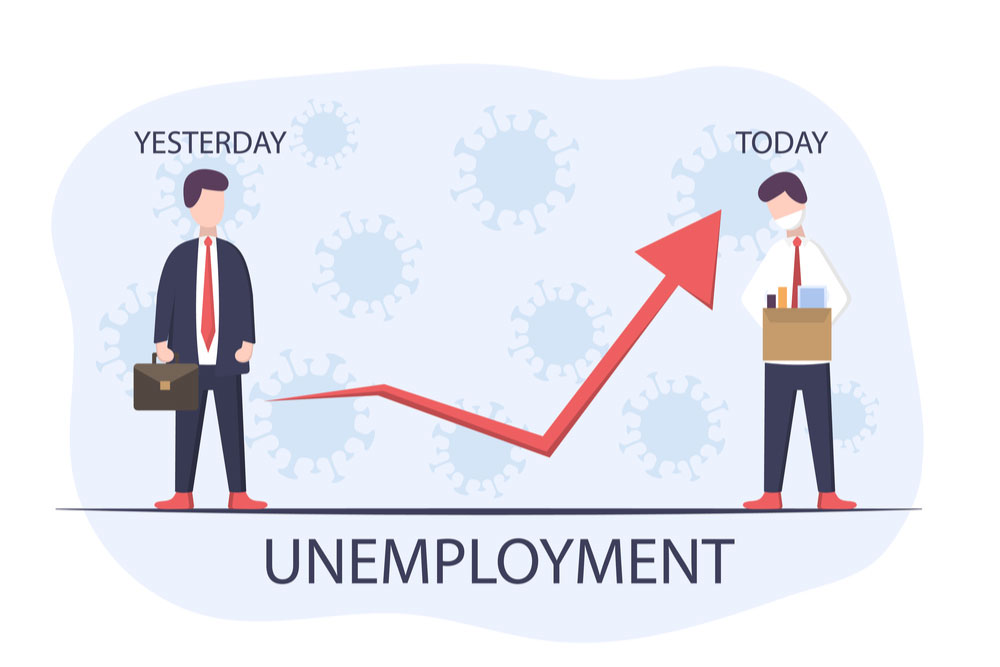
Are Unemployment Compensation Payments Exempt?
As of April 16, 2020, more than 22,000,000 people in the United States have filed for unemployment assistance, “a staggering loss of jobs that has wiped out a decade of employment gains and pushed families to line up at food banks as they await government help.” What happens to those benefits in Bankruptcy? Are the unemployment payments exempt from creditors?
Federal Exemption in Bankruptcy
The federal exemptions available to individuals under section 522 of the Bankruptcy Code offers a large list of specific benefits, including those in paragraph 522(d)(10) which state:
(10) The debtor’s right to receive—
(A) a social security benefit, unemployment compensation, or a local public assistance benefit;
(B) a veterans’ benefit;
(C) a disability, illness, or unemployment benefit ….
This language leaves Debtors partially exposure and is important to understand before filing bankruptcy in states that afford filers federal exemptions.
While, under the majority rule, the section 522(d)(10) exemption covers both a debtor’s present and future right to receive certain benefits, it nevertheless does not exempt actual benefits, once distributed and in the hands of the debtor. In re Collin, 182 B.R. 763, 768-69 (Bankr. N.D. Ohio 1995). On the contrary, section 522(d)(11), which exempts both the debtor’s “right to receive” and “property that is traceable to” certain benefits. In re Chapman, 177 B.R. 161, 163 (Bankr. D. Conn. 1994). While this is technically correct, this limit on the right to exempt these benefits leaves a gap in the Bankruptcy Code that could lead to inequitable results for debtors who are receiving benefits as their primary or sole source of income.
Florida’s State Unemployment Compensation Exemptions
Florida has opted out of the federal exemptions contained in 11 U.S.C. § 522(d). Debtors are permitted to claim as exempt only that property which is exempt under state law. Florida’s Chapter 443.051 – “Benefits not alienable; exception, child support intercept” allows for unlimited exemption, except from child support obligations. Florida law states in pertinent part that “…benefits due under this chapter may not be assigned, pledged, encumbered, released, or commuted and, except as otherwise provided in this chapter, are exempt from all claims of creditors and from levy, execution, or attachment, or other remedy for recovery or collection of a debt, which exemption may not be waived.” Chapter 443.051(2). However, it is important to note that Child support obligations will be deducted and withheld from unemployment compensation. Chapter 443.051(3)
It is important to remember that each state’s exemptions must be examined to determine their coverage and you should speak to a licensed bankruptcy attorney prior to filing your case.
Inclusion of Unemployment Payments in Current Monthly Income or Disposable Income
Even if unemployment compensation is exempt in Florida, it may be a factor in the bankruptcy of many debtors by being included on the current monthly income form (Official Form 122A-1).
Completion of the Chapter 7 Statement of Your Current Monthly Income is the starting point for the Chapter 7 Means Test Calculation (Official Form 122A-2) and the Chapter 13 Statement of Your Current Monthly Income and Calculation of Commitment Period (Form 122C-1). In both Form 122A-1 and Form 122C-1, Line 8 requires disclosure of unemployment compensation and only expressly allows its exclusion from the computation of current monthly income if the debtor contends that it is a benefit under the Social Security Act.
Unlike CARES Act and similar stimulus payments, unemployment benefits are treated more clearly and are generally included in Florida and federal exemptions. In bankruptcy, however, the debtor may be required to include the sums in the calculation of both current monthly income and disposable income, with a resulting burden on the bankruptcy of many debtors.
Contact a Miami Bankruptcy Lawyer
If you have any questions regarding unemployment compensation and how it effects filing for either Chapter 7 Bankruptcy or Chapter 13 Bankruptcy, we can help. Contact an experienced Miami Bankruptcy Attorney at (305) 515-5928 for more information.
